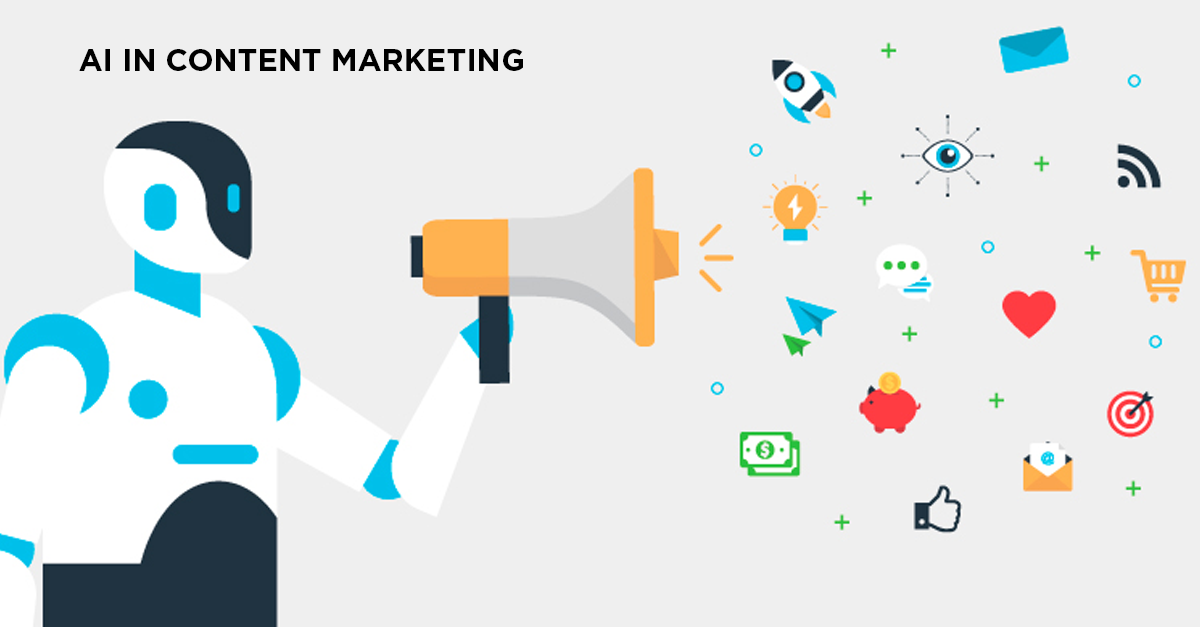I have always thought of marketing as a means to create relationships, rather than as a tool to convince or coerce. To my mind, one of the biggest changes in the business climate – regardless of which industry one is speaking of – is the empowerment of the customer. As an approach, content marketing recognizes both these two essential truths – that the customer is now more aware, enabled and willing to consider their options, and that establishing trust is a powerful generator of cascading value. So how does Artificial Intelligence fit into all this? Well, we all know that as a multiplier of strength, AI has no equal, but I find its influence on content marketing unique in particularly interesting ways.
The fundamental strength of creating blogs, videos and other content marketing elements, is being able to relate with one’s customers on a human level. To be honest, it is not so much an innovation in approach as returning to a less isolated and purely commercial approach, which was historically the basis of the relationship between buyer and seller, for centuries. Somewhere along the way, mass media and electronic platforms had altered the way businesses interacted with their clients. With the return to a more relationship based model, as opposed to a transaction based one, there is a possibility to have a more personalized engagement.
Technology, of course, is again the great enabler in this context as well but, as we will soon see, the specifics are rather different to the approach used in previous decades. In my own case, what I find truly exciting about the marriage of AI and content marketing has to do with the ability to gain a deeper and more valuable insight into one’s audience.
Understanding our customers through AI
At its most basic and fundamental level, AI is essentially the capacity of a machine to learn through repetition, identify patterns and communicate and problem solve, on the basis of these insights. Ultimately, this coming to conclusions on the basis of observable patterns is the same process involved in human intelligence as well. Some of the advantages that AI has, are the ability to crunch much larger data sets than a human mind can process, being able to interpret on the basis of rationally identified parameters, rather than personal prejudices, and being able to do all this constantly and consistently.
Obviously, one of the great advantages is that a machine can make much greater sense of the ever-increasing data on the web, which is constantly flooding in and multiplying, without getting tired or overwhelmed. What’s more, AI can empower personalized marketing like never before, while also expanding the possibilities in terms of rapidly creating effective content. This entire set of advantages essentially flows from being able to recognize patterns and emerging consensus, constantly and on a continuous basis, using a very comprehensive sweep of records. Not only that, AI is able to gain insight into smaller groups and even individuals, while continuing to gain wider insights at the same time. These abilities give businesses a far more detailed understanding of their customers than ever, and can be the basis for a much richer interaction between the two.
Automation of Content
So what else? Certainly, gaining insights, personalization and predictive analytics are all very powerful tools. However, in my opinion, some of the most gamechanging potential of AI lies beyond this. It’s important to remember that Machine Learning – or the ability to interpret data on the basis of programmed logic and continuous refinement of this – is only part of AI. The aspects that present even more possibilities for the future are the actual creation of content, on the basis of the insights that Machine Learning, or Deep Learning, has enabled.
Sure, there are some who are skeptical as to how effective AI created content will be in the long term, but I feel this comes from a misunderstanding to human intelligence and what the term ‘intelligence’ itself means. Is the AI creating such content self-aware or emotional? Not at all – as far as we know – but is this really the basis for marketing content? The fact of the matter is that media corporations as diverse as FOX, Yahoo and Associated Press have been using algorithms to generate content for some time already. The increasing number of websites successfully interacting with customers using chatbots is another example of machine-human interaction using natural language. If we really look at what drives the communication we humans indulge in, during the course of our day, we can see that a significant portion of it sticks to quite rigid rules. There is no greater stickler for rules, than a machine, and when it comes to an ‘intelligent’ one, the rules can be far more nuanced than ever possible in the past.
Partnerships with Machines, to enrich what is Human
Some of the most insightful commentators on the possibilities of AI have always maintained that it will enhance what is human about us. I strongly believe that this is particularly true in the field of content marketing. Superficially, content created with little or no human intervention might seem contrary to this, but is this really so? An AI which has been programmed on the basis of the corporate culture and values of a business will interpret customer data from that perspective far more consistently than a human being ever can. Ultimately, what will be empowered as a consequence is the human-to-human contact between businesses and their clients.
By design, individuals within an enterprise are limited to their specific roles. This can rob the combined entity, which is the business, of its soul and values. What AI can enable is, counter-intuitively, to continuously and consistently represent that the business on the basis of the approach that the humans within the organization have committed to.

